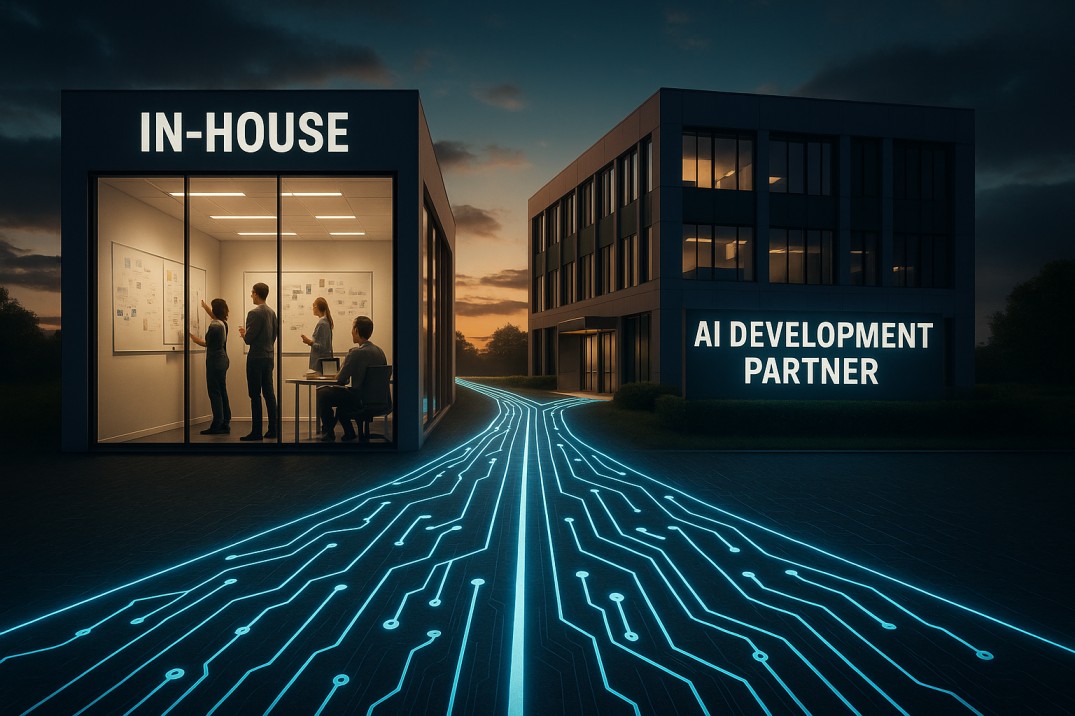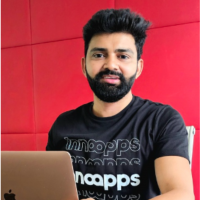AI Strategy at a Crossroads: New Guide Helps Startup Founders Choose Between Building In-House and O

Strong 8k brings an ultra-HD IPTV experience to your living room and your pocket.
Melbourne, Australia - July 2025 — In a time where artificial intelligence has transitioned from a tech trend to a core driver of business innovation, startup founders are facing one of their most strategic decisions yet — should they build an in-house AI team, or partner with an AI software development company?
To help founders navigate this complex decision, a new comprehensive guide titled “The AI Fork in the Road” has been released. This founder-focused resource breaks down the strategic, technical, and financial implications of both paths — and introduces a growing third option: the hybrid approach.
With AI influencing everything from product innovation and customer engagement to operational efficiency and competitive differentiation, understanding how to approach AI development is not just a technology question — it’s a business-critical one.
“It’s not just about whether to build or buy,” the guide explains. “It’s about whether you build smart or hire strategically.”
Two Core Paths: Control vs Speed
The guide draws a clear distinction between the two dominant approaches:
1. Building an In-House AI Team
This option offers complete control over intellectual property, direct alignment with product goals, and long-term strategic integration of AI within the organization. Startups that go down this road often see benefits such as better model outcomes, team agility, and a deeper connection between AI and business goals.
However, the challenges are significant. Founders must be prepared to hire top-tier AI engineers, data scientists, MLOps experts, and supporting infrastructure talent — all of which can be costly and time-consuming. In-house AI teams also require strong technical leadership from day one, and the process from hiring to shipping can span several months.
This model works best when AI is core to the product or IP, such as in the case of fintech, medtech, or security-focused products.
2. Outsourcing AI to a Development Company
Outsourcing AI allows founders to move quickly — often launching an MVP or working prototype within 8 to 12 weeks. This path grants access to a full stack of AI talent, including machine learning engineers, data specialists, cloud architects, and domain experts — all without the overhead of full-time hiring.
It is especially effective for founders with limited internal resources or short runways who want to validate ideas before committing to scale.
The trade-off? Less control over day-to-day development, potential concerns around IP ownership, and higher long-term costs if ongoing support is not clearly defined in the contract.
The Rise of the Hybrid Model
Acknowledging the realities of startup life — limited capital, aggressive timelines, and evolving priorities — the guide also introduces a third, increasingly common approach: the hybrid model.
In this strategy, companies outsource early AI development to rapidly validate the product and attract investor attention. Once the solution shows promise, the startup begins building an in-house AI team to iterate, own, and scale the technology internally.
This model provides the best of both worlds: speed to market and long-term control. It also offers greater flexibility, as startups can dynamically allocate resources depending on their phase of growth and technical maturity.
Critical Considerations for Founders
To support better decision-making, the guide includes a founder-centric decision checklist. Key questions include:
1. Is AI core to your product, or is it just an enabling feature?
2. Do you currently have a technical co-founder or CTO?
3. What’s your ideal time-to-market window for a functional MVP?
4. How much financial runway do you have for hiring and experimentation?
5. Are you operating in a regulated industry where compliance and data security are critical?
Vendor Selection Checklist
For those considering outsourcing, the guide includes a vetted AI vendor selection checklist, covering crucial factors like:
1. Proven track record in similar industries or projects
2. Experience with tools like TensorFlow, PyTorch, MLflow, and MLOps
3. Clear post-launch support and retraining commitments
4. Transparent IP ownership and data confidentiality agreements
5. Depth of AI specialization vs. general full-stack development
Real-World Startup Scenarios
The guide features examples of startups using each model effectively:
1. In-House Success: A fintech company developed its AI-powered credit scoring engine internally to maintain full control of compliance and proprietary algorithms.
2. Outsourcing Wins: A D2C brand used outsourced AI to build and integrate a recommendation engine for personalized marketing — without hiring a single data scientist.
3. Hybrid in Action: A B2B SaaS startup outsourced its chatbot MVP, validated user engagement, and then raised Series A funding to form its internal AI team.
Final Advice: Start Small, Scale Smart
For founders still on the fence, the guide offers simple advice: start small.
“Don’t aim for the perfect AI system from day one. Outsource your MVP, measure its impact, and use those insights to decide whether to bring AI in-house,” says the guide.
This phased approach minimizes risk, offers real-time learning, and gives founders the flexibility to evolve their AI strategy as their company grows.
About InnoApps Technologies
InnoApps Technologies is a leading AI development company globally, delivering custom AI development services to startups, enterprises, and innovation-driven organizations globally. With expertise in generative AI, adaptive AI systems, and enterprise-grade MLOps, InnoApps helps businesses design and scale intelligent digital products that last.
Whether you're looking to validate an idea, build an AI-powered solution, or scale intelligently, InnoApps brings proven frameworks, cross-functional expertise, and a strategic mindset to every engagement.
Media Contact:
Name: Ankit Singh, CEO
Email: [email protected]
Website: www.innoapps.com
Note: IndiBlogHub features both user-submitted and editorial content. We do not verify third-party contributions. Read our Disclaimer and Privacy Policyfor details.



